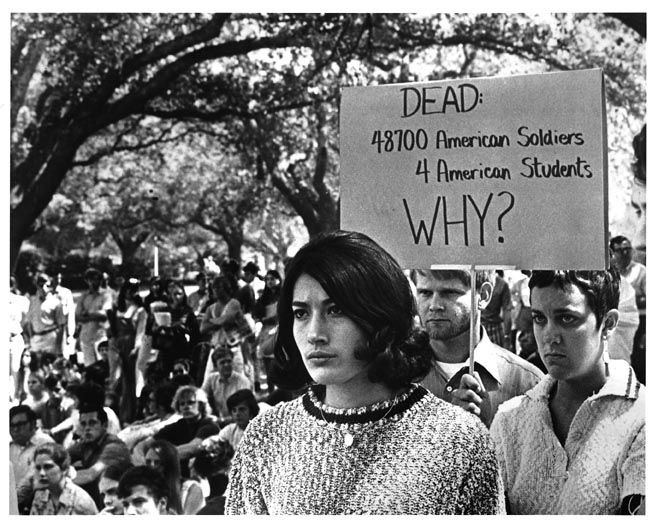Age in an Inspector Calls
This is the third in a series of articles on the themes of the play, ‘An Inspector Calls’.
The first focused on class division and social responsibility and can be read by clicking on here.
The second about gender can be read by clicking on here.
In our two previous articles we looked at different themes within ‘An Inspector Calls’ which included classism, social responsibility and also gender. In this article we will look at that of age.
One thing in life is constant and permanent, which is that things are never constant or permanent. There is always change. Change can occur due to external factors or internal factors, but even then the internal factors leading to change are often prompted or stimulated by external events. Let’s take a simple example. You may like smoking but then something happens e.g. you see something unpleasant or have a conversation (external event) and then you think about that event (the thinking being an internal factor) and you think about it and then you decide to stop smoking.
As people change constantly from being babies to infants to young children to adolescents to adults so do societies change. The change can be of a different nature, sometimes it can be slow, gentle and gradual, other times it can be dramatic, rapid and even traumatic e.g. a violent revolution or war of independence.
Britain of 1912 when the play, ‘An Inspector Calls’ is set was different to the Britain of 1812 which was in itself different to the Britain of 1712. Britain in 1712 was prior to the industrial revolution really taking off and Britain was still mainly a rural society with mass illiteracy.
Change amongst the younger generations.
The younger generations are different to the older generations in that that they are – of course – younger with more energy and feel that they have their whole life ahead of. They are not necessarily looking to ‘preserve’ or ‘conserve’ what they have built after years or decades of work but to forge a new path.
They are fresh, often more open-minded (arguably also more naive) but they do have ‘time’ and ‘energy’ to make mistakes which they can then learn from or rectify. The older generation do not have such time and often have more to lose if things go wrong, whereas the younger generation can rebuild even if they lose everything.
However each generation of youth often contribute to change in society and step by step over the decades and centuries society becomes different.

The 1960s were witness to huge student protests around the world including the USA.
Priestly seems to show this in ‘An Inspector Calls’ (AIC) in the difference between the two generations of the Birlings. The parents Arthur and his wife Sybil are different in their attitudes in comparison to son and daughter, Eric and Sheila.
Inter-generational differences and tension.
The elder Birlings do not show any remorse for their behaviour and actions which contributed to Eva’s death. Mr Birling had fired her, Mrs Birling had refused to help her when Eva came to her charity. In contrast both Sheila and Eric do feel guilt.
Often those not themselves personally involved in a situation and not emotionally entangled can see things from a more objective and accurate perspective. So the audience watching the play would most likely have seen the elder Birlings as lacking some compassion and decency at their relative indifference to Eva’s death.
Mr Birling would already in the minds of the audience been established as somewhat of an ignorant person or even fool.
- Mr Birling claims that the first world war would not happen, which is a supreme irony as this first global military conflict resulted in the death of 17 million people and began 2 years after the play is set. We see this in his words: ““And I’m talking as a hard-headed, practical man of business. And I say there isn’t a chance of war. The world’s developing so fast that it’ll make war impossible.“
- Mr Birling also says that the Titanic is unsinkable, ‘The titanic- she sails next week’-‘Unsinkable, absolutely unsinkable’.
As we all know the Titanic did indeed sink.
And as mentioned before we know that war did indeed break out and the Germans contrary to what Mr Birling says about ‘Fiddlesticks! The Germans don’t want war. Nobody wants war” were ready for war.
So Mr Birling is far from a figure of any credibility. What Priestly is doing on a deeper level is showing that wealthy capitalists despite being able to make money are not necessarily intellectually superior to ordinary people, that they are not always right. Therefore they have no automatic claim to intellectual leadership or priority in saying how society should operate. This is a very important point which many analysis of the play miss or do not mention.
Logically some might assume, “Mr Birling is a smart and clever guy. He knew how to make money and become successful, we should listen to people like Mr Birling as they are cleverer than us/others”. However if anyone were to subconsciously or consciously have that idea then Priestly dispels it by highlighting Mr Birling’s ignorance and he does this by two very massive examples: a) A global world war resulting in the deaths of millions b) The sinking of a world famous ship.
These are not soft, subtle examples that some of the audience might miss, these are ‘unmissable’, metaphorically speaking Priestly is using ‘Neon lights’ to highlight Mr Birling’s stupidity.
If society itself is a giant ship (like the Titanic) then giving leadership of this ship (society) to the likes of Mr Birling is very unwise.
Mr Birling’s lack of compassion.
In addition to being a ‘fool’, thus not a source of respect or emulation Priestly then continues from that by showing how the character of Mr Birling, now established as somewhat foolish, is also inhumane.
There are various quotes illustrating his apathy, indifference to the tragic fate of Eva Smith. On of these is:
“‘I can’t accept any responsibility. If we were all responsible for everything that happened to everybody we’d had anything to do with, it would be very awkward’ (Act 1)
The use of the word ‘responsibility’ in this quote is useful in exploring the theme of ‘social responsibility’ in the play.
Another useful quote is:
“‘The famous younger generation who know it all. And they can’t even take a joke.’
Birling uses the word “generation” in this quote which will help any exam student when talking about the inter-generational differences between the older and younger Birlings.
Mrs Birling’s lack of remorse.
Mrs Birling is a conservative women who believes in traditional gender roles and perpetuating class hierarchy.
She defends her actions in refusing to help Eva when she sought help from her charity. We see this in the words:
““So I was perfectly justified in advising my committee not to allow her claim for assistance.”
Eric and Sheila’s remorse.
Both Eric and Sheila are different to their parents and there is a conflict between them, so strong that it almost boils over in to actual violence as we see when the character of Mr Birling, already established as foolish and cruel, is then shown as violent. He may not engage in physical violence but comes close to actually threatening it – which in some people’s eyes is a form of violence or ‘verbal violence’ – against his own son, Eric.
““Why, you hysterical young fool – get back – or I’ll -“
Priestly clearly continues to undermine the figure of Mr Birling in what can be seen as a general critique against wealthy capitalists as represented in the play by Mr Birling. They may have more money in their account but they, or at least Mr Birling, can lack intelligence, honour and decency.
Threatening a son is a dishonourable act, even though Mr Birling himself talks about things such as:
‘I was an alderman for years – and Lord Mayor two years ago – and I’m still on the Bench – so I know the Brumley officers pretty well’ (Act 1)
and
“You! You don’t seem to care about anything. But I care. I was almost certain for a knighthood in the next Honours List’ (Act 3)
It can be argued that what Priestly is doing here is continuing his whole critique of the more powerful and rich in society and showing that despite them having titles such as ‘Lord Mayor’ or becoming knighted and thus being called ‘Sir’, behind the scenes they my not be the most honourable of people. They are not necessarily figures worthy of emulation. Priestly himself was a political leader and was in conflict with wealthy capitalists.
Eric himself says to his father:
“You don’t understand anything. You never did”
The audience having seen what Birling had said about World War I not happening or the Titanic not sinking would of course agree with Eric. In this case the younger generation, in the form of Eric are right and the older generation are wrong.
Other important quotes from Eric are:
“‘We helped to kill her.”
Perhaps on a deeper level it could be argued that by the use of the word ‘We’, Priestly is also indicating that ‘We’ as a society all collectively failed Eva and women like her, and thus that we as a society have a responsibility to change and ensure this never happens again.
“Then- you killed her. She came to you to protect me- and you turned her away-yes, and you killed her-and the child she’d have had too- mychild- your own grandchild- you killed them both- damn you, damn you-”
Quotes from Sheila include:
“‘Between us we drove that girl to commit suicide.”
and
“You turned the girl out of one job, and I had her turned out of another. Gerald kept her – at a time when he was supposed to be too busy to see me. Eric – well, we know what Eric did. And mother hardened her heart and gave her the final push that finished her.”
Inter-generational differences.
The difference between the Birling parents and their two children is huge. Is it representative of an inter-generational difference in British society in general? That is an interesting question but would require more evidence. It could be argued that the elder Birling’s had worked hard in their lives to get to where they wanted to and were on a deep subconscious level afraid of losing it all and jealously guarded it.
Whereas the younger Birlings having had an easier and more privileged youth had the luxury of being more ‘compassionate’. Was Mr Birling born as insensitive to the plight of the poor or did he acquire this character by having to work hard and be ruthless? We don’t really know Mr Birling and his life story in full, but regardless his attitude towards Eva is inexcusable.
It would be interesting to speculate whether left-wing political leader, J.B. Priestly is also scaring the elite of society a little bit through the play by sending a message, ‘If you don’t change and become more decent your own children will turn against you!‘ These are all questions for which we do not have sufficient evidence to answer but are interesting to be aware of an explore.
However Priestly does seem to be showing that what the wealthy do to the poor can have repercussions which can hit them in their own family lives and at home, that we are all part of one wider inter-connected society.
Useful vocabulary for GCSE students in essays and exam questions.
- Inter-generational
- Dramatic irony – e.g. in the way Priestly shows Birling’s stupidity in saying WW1 would not happen.
- Parental – adjective of parent.
- Status-obsessed – To be very concerned or obsessed with your status in society, your reputation or your image e.g. “Mr Birling is clearly a status-obsessed individual who makes reference to a possible knighthood and being a former lord mayor”
- Introspection – The process of looking at yourself including your own flaws, often resulting in reform.
- Unrepentant– Not repenting i.e. being sorry for doing something, not ashamed of it, e.g. “Mrs Birling is unrepentant for denying Eva aid”
About English Made Simple

English Made Simple is a website dedicated GCSE English, IELTS Preparation and other things providing useful content to readers all across the world on how to improve their English

